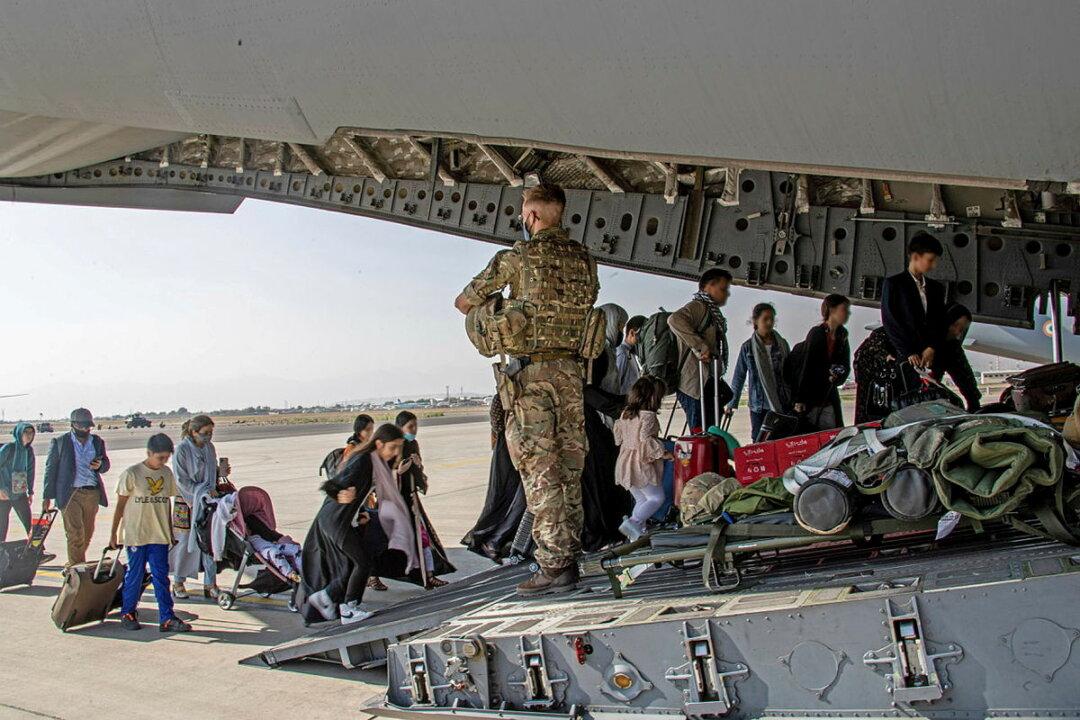A British officer in charge of Britain’s evacuation of between 6,000 to 7,000 people from Afghanistan says Taliban commanders around the airport in Kabul have not sought to disrupt the effort.
Royal Navy Vice Admiral Ben Key says “pragmatic, tactical, low level” discussions have had to take place with the Taliban terrorists as they control entry points into the airport.





